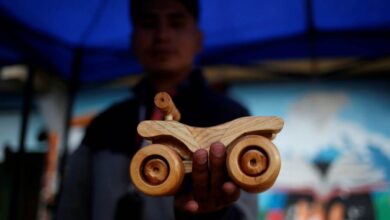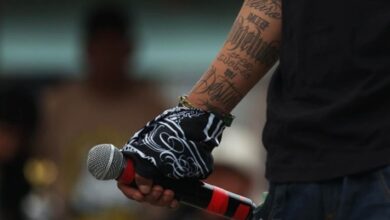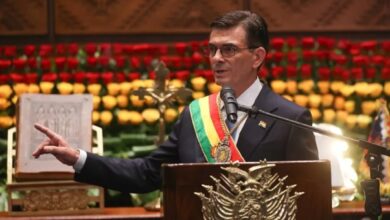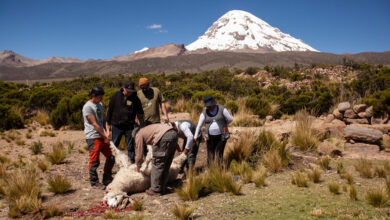Bolivian Senator Battles Infighting To Fill Left’s Empty Throne
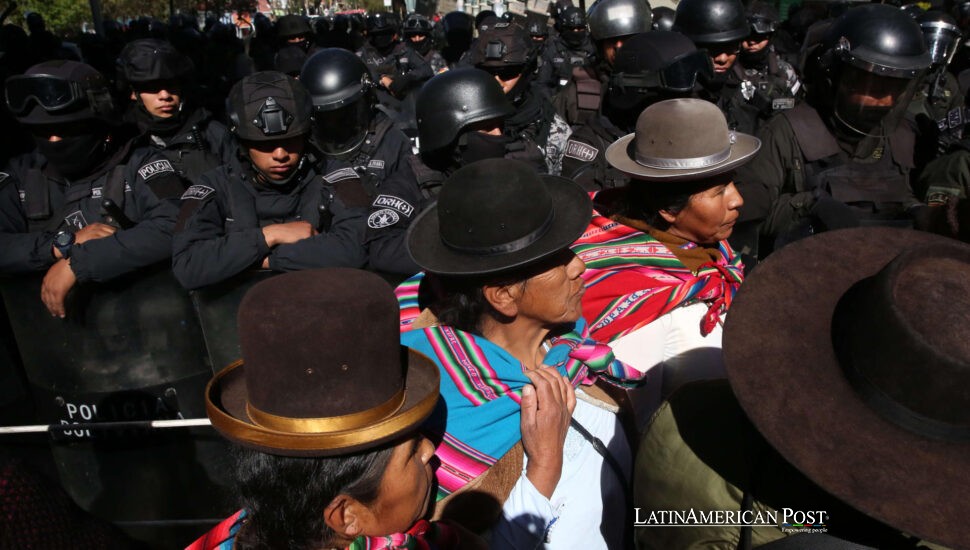
Bolivia’s once-unbreakable ruling party has cracked wide open, and a senator who never expected center stage through the fissure steps. As feuding veterans drop away, 36-year-old Andrónico Rodríguez now shoulders the left’s splintered hopes—and its simmering resentments.
Shadow Heir Becomes Front-Row Target
Until this year, Andrónico Rodríguez was a silhouette at Evo Morales’ side—quiet, obedient, easy to overlook beneath the former president’s booming presence. He chaired the Senate with dutiful calm, visited coca-growing unions that adored Morales, and watched as the Movement toward Socialism (MAS) carried election after election in the ex-leaders’ names alone. But destiny yanked the apprentice forward when Morales clashed with President Luis Arce, and the party cleaved. Arce swore off re-election, Morales was ruled ineligible by the Constitutional Tribunal, and suddenly Bolivia’s most famous political machine looked like an engine missing its two pistons.
Rodríguez sensed the vacuum before anyone else filled it. One afternoon, he emerged from a committee room and announced he would run for president without the usual round of consultations. The declaration sounded almost accidental—an unplanned sentence tumbling from a man better known for measured pauses. Yet the effect was immediate. TV anchors replayed his words on a loop; radio stations in the altiplano buzzed about “Andrónico el joven.” Morales, blindsided, labeled him a traitor and hinted at foreign fingerprints on the senator’s rise. Loyalists fanned the rumor mill: Rodríguez was courting conservative financiers, flirting with Washington, and bargaining with business elites.
The senator said he had spoken to “over a hundred social bases” begging for fresh leadership. His supporters marched through Cochabamba waving green banners stitched overnight and chanting, “¡Ni Evo ni dedo—Andrónico es el pueblo!” Yet even as crowds swelled, lawyers filed motions to disqualify the breakaway platform that would carry his name, the Movimiento Tercer Sistema. One adviser faced accusations of ties to a Brazilian trafficker; another resigned amid sexual abuse allegations. Cameras lingered on the young candidate’s face, searching for cracks. He stared straight ahead, jaw set, as if absorbing each blow confirmed the role he never asked for.
A Party Searching for Its Pulse
MAS was Bolivia’s ideological compass for two decades—a coalition of miners, women’s collectives, and high-altitude farmers orbiting a single lodestar, Evo Morales. That dominance bred complacency. No lieutenant dared cultivate a personal brand; none could equal Morales’ gift for three-hour rally speeches that blended myth, grievance, and humor into raw political electricity. When he resigned in 2019 amid election turmoil, the party still won back the presidency under Arce, but a hairline fracture remained. In 2023, it splintered. Morales denounced Arce as a usurper; Arce dismissed Morales as yesterday’s headline. Rank-and-file militants watched, bewildered, as their lodestar split into two dimmer orbs—and neither offered a roadmap to 2025.
Into that confusion steps Rodríguez with neither Morales’ charisma nor Arce’s technocratic credentials, but one essential advantage: neutrality in the civil war that gutted MAS. Born in Chapare and raised among coca growers, he speaks Quechua to elders, Spanish to city journalists, and Twitter-ready slogans to restless students who feel fenced out of Morales-era patronage. He is polite where Morales roared, methodical where Arce drills down in spreadsheets. Critics call that blandness; allies call it oxygen.
Still, “accidental” clings to him like static. He did not spend ten years forging a nationwide structure. He rides a wave created by the collapse of others. Even his fiercest backers admit the movement is fragile—an alliance of rural unions craving relevance, urban youth chasing novelty, and veteran leftists allergic to another Morales-Arce slugfest. Gluing those factions together requires more than calm smiles. It demands answers on fuel subsidies, lithium deals, and how to juggle Chinese investment, U.S. skepticism, and indigenous land rights without lighting any fuse. Each misstep feeds the narrative Morales whispers from the wings: This boy is not ready.
Tightrope Above an Abyss
Rodríguez enters the Senate chamber every morning under chandeliers that once lit Morales’ triumphs. They flicker over empty seats as loyalists boycott sessions, declaring the chamber “contaminated.” Outside, graffiti duels appear overnight—blue paint hailing “Andrónico futuro,” red spray accusing him of betrayal. Security escorts shadow him through corridors where he once strolled alone.
Legal clouds darken. Three impeachment motions accuse him of manipulating committee agendas to favor his campaign. A fourth petition claims he “usurped the revolutionary mandate” by partnering with MTS instead of running under MAS. Court calendars fill with hearings that could freeze his candidacy weeks before registration deadlines. Yet the senator’s schedule remains relentless: dawn radio in El Alto, midday meetings with quinoa cooperatives, and dusk live streams fielding questions on corruption. Viewers send heart emojis and knives—digital reminders that Bolivia’s electorate forgives slowly.
Rodríguez walks a line thinner than Andean air: too gentle with Morales’s supporters, and he looks weak, too harsh, and he alienates rural bases that still revere their former cocalero president. He invites Morales to join a unity ticket—silence. He praises Arce’s economic stabilization. The nation watches a 36-year-old juggle flaming torches tossed by mentors who would rather see him drop them than shine.
Pollsters confess the landscape is unreadable. One survey shows Rodríguez leading in Cochabamba, trailing in La Paz, virtually unknown in Santa Cruz. Another flips the board. All agree on fatigue: voters tire of internecine warfare, while inflation nibbles paychecks and drought shrivels soy fields. If Rodríguez can project competence amid chaos, he could glide through the rift left by MAS’s implosion. If not, the party could splinter again—this time beyond repair—handing power to conservatives who sense opportunity in every MAS headline beginning with the word “split.”
Also Read: Latin America’s Health Threats Under Looming Nuclear Grim Shadows
Whether Andrónico Rodríguez becomes Bolivia’s next president or a footnote in its saga of revolutionary family feuds will hinge on the coming months. Courts may bar him, scandals may stick, or Morales may unleash a final campaign that pulls old loyalties back into orbit. Yet for now, the accidental standard-bearer stands where even seasoned politicians tremble: alone at the microphone, with a nation’s divided future tilting on his following sentence.


